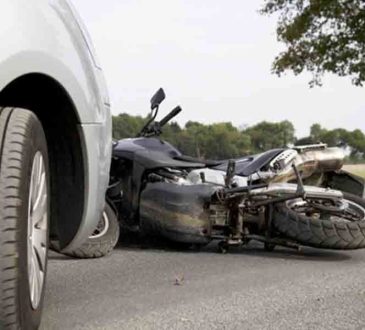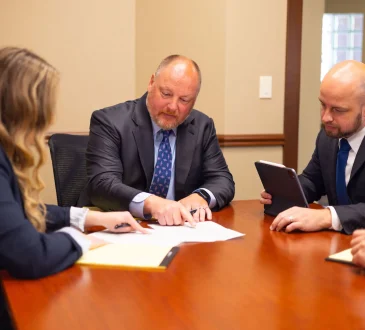
A crash on Route 1 or I‑95 can upend a normal day in Attleboro in seconds. In the aftermath, decisions made in the first hours and weeks can shape both health outcomes and the strength of a legal claim. This guide explains what car accident victims in Attleboro, Massachusetts should know, from immediate next steps to comparative negligence rules, evidence, damages, negotiations, and deadlines. For many, working with experienced Attleboro MA Car Accident Lawyers, such as the Law Office of John J. Sheehan, LLC, can make the process less stressful and more effective.
Key steps to take immediately after a car accident in Attleboro
Safety first. If it’s safe, move vehicles out of active lanes, especially on I‑95 or busy local arteries like Newport Avenue, to prevent a secondary collision. Turn on hazards and use flares or triangles if available.
Call 911. Even seemingly minor crashes can involve hidden injuries. Request police and EMS. Massachusetts is a no‑fault state, and prompt documentation of injuries and the scene helps with Personal Injury Protection (PIP) claims and any later liability claim.
Exchange information. Collect names, phone numbers, driver’s license numbers, license plates, and insurance details for all drivers. Be polite but don’t admit fault or guess about what happened.
Document the scene. Take wide and close-up photos of vehicle positions, damage, skid marks, debris, traffic signals, weather, road conditions, and any visible injuries. If there are nearby businesses (think Pleasant Street shops) or homes with cameras, note locations in case footage can be preserved.
Identify witnesses. Get names and contact details for any bystanders. Independent witness statements can be pivotal where fault is contested.
Seek medical care. Go to the ER or urgent care the same day, even if pain is mild. Adrenaline masks symptoms: early evaluation creates a baseline and ties injuries to the crash.
Notify insurers. Report the crash to your insurer quickly to open PIP benefits, but be cautious with detailed or recorded statements to any insurer (including the other driver’s) before consulting counsel.
Start a file. Keep everything: medical records and bills, discharge instructions, prescriptions, repair estimates, towing invoices, missed work documentation, and a daily journal of symptoms and limitations.
Consider legal help. Consultation with Attleboro MA Car Accident Lawyers, such as the Law Office of John J. Sheehan, LLC, can help protect rights, coordinate PIP, and preserve evidence before it fades.
Understanding Massachusetts’ comparative negligence rules
Massachusetts follows a modified comparative negligence system (the 51% bar rule). An injured person may recover damages so long as they are not more than 50% at fault. If they’re 51% or more at fault, they recover nothing. If they are 50% or less at fault, their damages are reduced by their percentage of fault.
Consider a rear-end crash by the South Attleboro station. If the injured driver is found 20% negligent for stopping abruptly with a non-functioning brake light, a $100,000 verdict becomes $80,000. That allocation of fault is often the most contested issue in a case.
Practical implications:
- Evidence matters. Photos, event data recorder (EDR) downloads, and witness statements can shift fault percentages.
- Multiple vehicles. In chain-reaction collisions on I‑95, fault may be apportioned among several drivers: each defendant pays their share of damages.
- Seat belt use. While Massachusetts allows evidence of seat belt use in limited contexts, the defense may still argue failure to mitigate damages. A strong medical causation narrative can counter that.
Experienced counsel builds a liability narrative early, anticipating comparative negligence arguments and preserving proof that keeps a client at or below the 50% threshold.
How police reports and medical records strengthen a claim
Police reports and medical records are the backbone of most Attleboro crash claims.
Police reports:
- Objective snapshot. The Attleboro Police Department’s report typically notes locations, vehicle diagrams, apparent contributing factors (speeding, failure to yield), and citations. While not conclusive, insurers give these findings weight.
- Witness details. Reports often capture witness names that would otherwise be lost.
- Crash Operator Report. Massachusetts requires drivers to submit a Crash Operator Report to the RMV within 5 days when someone is injured, killed, or when property damage likely exceeds $1,000. Filing timely helps align facts and avoid coverage disputes.
Medical records:
- Causation and severity. ER notes, imaging (X‑rays, CT, MRI), specialist consults, and physical therapy records tie injuries to the collision and track progression.
- Consistency. Gaps in treatment or inconsistent complaints become ammunition for insurers. Following medical advice and documenting symptoms, sciatica after a rear-end crash, for instance, keep the record credible.
- Future care. Orthopedic and pain-management opinions about future injections, surgery, or long-term therapy inform settlement value.
Tip: Bring all post-crash records to a consultation. Attleboro MA Car Accident Lawyers can identify missing documentation, request EMT run sheets, and coordinate with providers to obtain complete files and narrative letters that clarify causation.
Calculating damages for medical costs, lost income, and pain
Massachusetts uses a mix of economic and non-economic damages in car accident cases. Because Massachusetts is no‑fault, PIP typically covers up to $8,000 in medical bills and a portion of lost wages regardless of fault. When injuries meet the tort threshold (more than $2,000 in reasonable medical expenses or certain serious injuries), victims may pursue claims against at-fault drivers for additional damages.
Economic damages:
- Medical expenses. ER visits, imaging, specialist care, physical therapy, chiropractic, prescriptions, assistive devices, and future medical needs. After PIP applies, any outstanding balances and future costs become part of the liability claim.
- Lost income. Pay stubs, employer letters, and tax returns substantiate time off. For self-employed professionals, say, a tradesperson commuting through Attleboro, profit-and-loss statements help quantify losses. Future lost earning capacity may require vocational and economic expert analysis when injuries are lasting.
Non-economic damages:
- Pain and suffering. The day-to-day impact: sleep disruption, limited mobility, missed family activities, chronic pain.
- Loss of enjoyment and inconvenience. Inability to coach youth sports, garden, or simply drive without anxiety along County Street.
Property damage and out-of-pocket costs:
- Vehicle repair or total loss value, diminished value claims, rental car expenses, towing, and replacement of child car seats per safety recommendations.
How value is built:
- Medical narrative. Clear diagnoses and consistent treatment raise confidence in claims.
- Prognosis and permanency. Physician opinions on residual impairment support higher awards.
- Comparative negligence. Even a strong case is discounted if fault is shared: minimizing the client’s percentage is critical.
Experienced firms like the Law Office of John J. Sheehan, LLC model damages using medical summaries, wage analyses, and, when appropriate, expert reports, so settlement offers reflect the full picture, not just bills to date.
Negotiating fair settlements with insurers and opposing counsel
Insurance carriers assess risk, not just sympathy. Effective negotiation pairs strong evidence with strategic timing.
Foundations of a persuasive demand:
- Liability package. Photos, diagrams, police report excerpts, witness statements, and, if needed, accident reconstruction.
- Medical proof. Organized records and bills, a treatment timeline, and a concise summary tying symptoms to the crash.
- Damages story. Before-and-after detail: what the client could do before the crash and what they can’t do now.
Timing and leverage:
- Reach maximum medical improvement (MMI) or obtain a doctor’s opinion on future care to avoid undervaluing ongoing issues.
- Use litigation milestones. Filing suit in Bristol County Superior Court or Attleboro District Court, serving discovery, and scheduling depositions often prompts movement.
Tactics to expect, and counter:
- Low-ball offers citing “soft tissue” injuries or gap-in-care arguments.
- Attempts to over-allocate fault under comparative negligence.
- Surveillance or social media cherry-picking.
Counsel who handle Attleboro claims regularly know local adjusters and defense firms, what ranges are realistic, and when to recommend mediation or take a case to trial. Attleboro MA Car Accident Lawyers can also coordinate PIP and health lien resolutions so net recovery is maximized.




